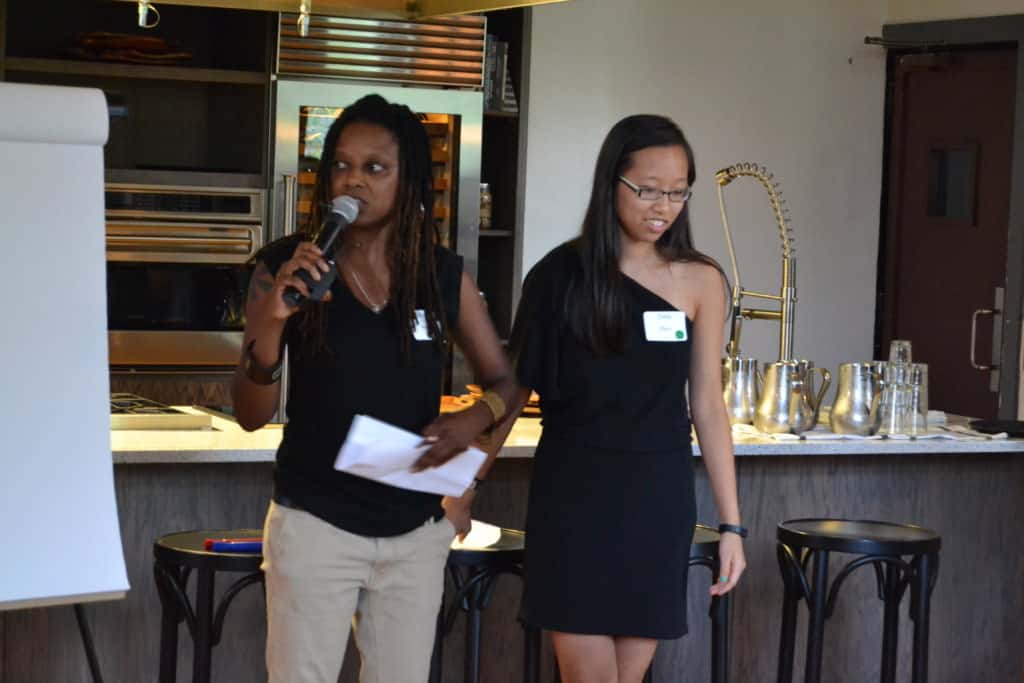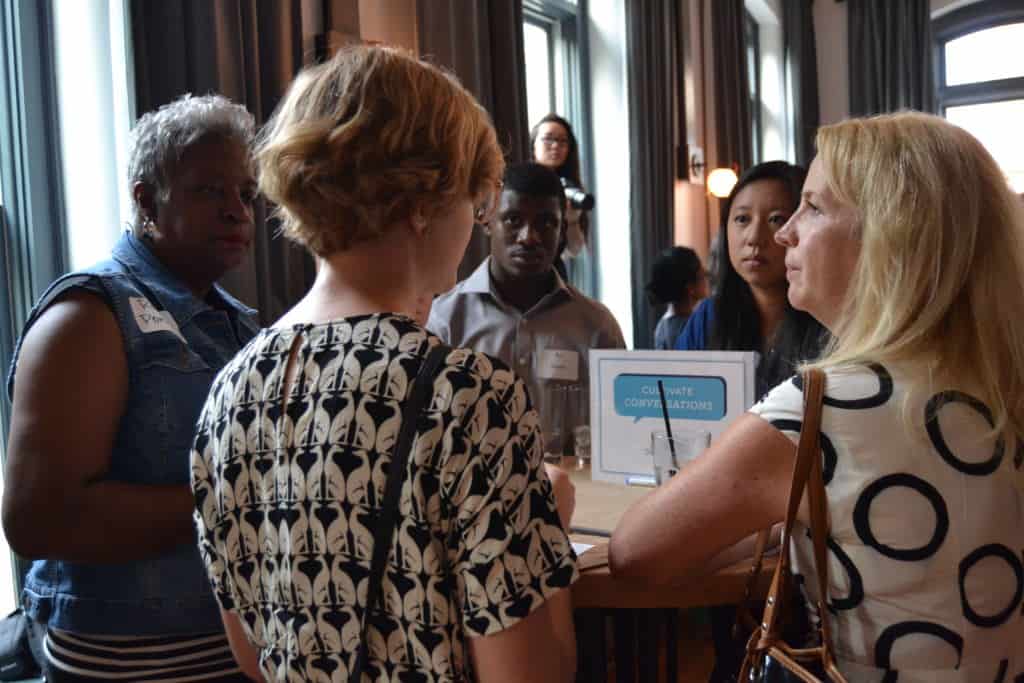Celia Zhou, a recent Enloe Magnet High School graduate, realized a couple years ago that she didn’t recognize many of the students walking her school’s hallways.
The division between the base and magnet population at Enloe, Zhou said, often keeps students from getting to know their classmates from different socioeconomic backgrounds.
“When I actually started engaging with people, that’s when I learned about some of the hardships that they have to go through,” Zhou said.
The struggle that troubled Zhou the most was that the majority of students at Enloe have to live each day without knowing where their next meal will come from.
Through a network of teachers and mentors, Zhou got involved with the Jamie Kirk Hahn Foundation and created The Food Ark — a nonprofit organization that works to spread awareness and take action to fight food insecurity in schools.
That’s what brought her center stage Tuesday night, speaking to a room full of students, teachers, government officials, and community members.
“Cultivate Conversation” was printed on signs on small tables. The evening, hosted by the Jamie Kirk Hahn Foundation, brought individuals and organizations together to create a discussion about food insecurity — how it affects students, how schools and organizations have tried to combat the problem, and how much is left to be done.


“Tonight, I challenge you all to think with an open mind,” Zhou said to the group. She continued with her goals for the participants — to really listen to the speakers’ insight and experiences, to think with creativity, and to follow through with action steps.
Matt Calabria, the Wake County District 2 commissioner, spoke first. Calabria said that 140,000 people in Wake County are food insecure out of a population of about 1 million. Fixing the problem is highly effective and efficient, he said.
“Kids who are adequately fed do better in school,” he said. Calabria said when students don’t have to worry about food, they have less disciplinary problems, fewer illnesses, higher test scores and a higher chance of going to college.
He shared some of the work that almost 200 different organizations are already doing — sending backpacks of food home with students, creating universal breakfast in some of the county’s neediest schools, providing healthy options nearby through community gardens and farmers markets.
Calabria said, moving forward, a solution must be comprehensive, collaborative and metrics-driven. He challenged the group to think of how to measure success and how to contribute to that success.
People gathered at the small tables, sharing ideas and scribbling thoughts on paper with markers. Small groups discussed the important role of student leadership and having breakfast in the classroom.
Durham Public Schools Director of Child Nutrition Jim Keaton spoke next, and started by sharing his own story of growing up in a disadvantaged family in Maine and receiving free-and-reduced-price lunch at school.
He said that while him and the other “free-and-reduced lunch kids” would eat in the cafeteria, all the other kids got to socialize or play on the playground. Keaton wants to reduce the stigma around food insecurity that he faced.
Keaton shared efforts in Durham — where 66 percent of students are food insecure — that have had success. He encouraged universally free breakfast and said that it puts all kids on the same level and benefits the entire school.
He said Durham has also provided the highest percentage of summer meals to students in the state. That still only counts for 24 percent of kids.
“The insecurity is terrible and there’s not enough being done about it,” Keaton said.
He turned to the audience and posed another question for discussion: How do we coordinate various parent and community involvement to increase the impact?

Conversations broke out on creating impact, on PTA groups and government organizations coming together to get on the same page.
Soon after, the crowd was encouraged to write down what actions they could take as individuals to work towards a solution.
I spoke with Amy Lo and Jessica Chen — both rising juniors at Panther Creek High in Cary. Inspired by Zhou, they are starting a Food Ark club at their school soon.
Chen said the event further encouraged her to reach out to people from all walks of life to understand the needs of her community.
“You have to be willing to talk to all kinds of people, be willing to be rejected,” she said. “Be willing to do anything to help people.”



